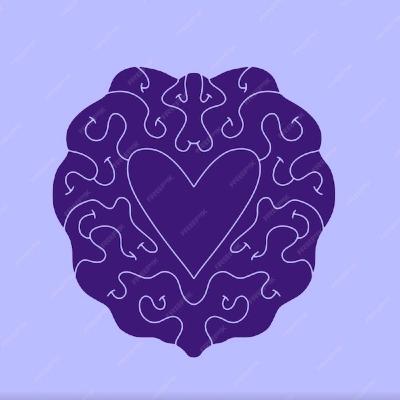Discover Mental Health 101
Mental Health 101

Mental Health 101
Author: Daniel Lucas/G.Mick Smith
Subscribed: 2Played: 10Subscribe
Share
© Daniel Lucas/G.Mick Smith
Description
Mental Health 101 Podcast: Your Guide to Well-BeingMental Health 101 is a podcast dedicated to breaking the stigma around mental health and providing listeners with practical tools for emotional well-being. Each episode explores key topics such as stress management, anxiety, depression, self-care, and resilience, featuring expert insights from psychologists, therapists, and mental health advocates.Whether you’re looking for strategies to improve your mental health, seeking guidance on supporting loved ones, or simply wanting to learn more about emotional wellness, Mental Health 101 offers
Hosted on Acast. See acast.com/privacy for more information.
9 Episodes
Reverse
The legend of Ozzy Osbourne, the "Prince of Darkness," has long been a heavy metal mythology built on the extremes of on-stage bat decapitation, rampant debauchery, and a seemingly superhuman capacity for self-destruction. Yet, lurking beneath the shocking headlines and carnivalesque persona was a far more human and complex battle: a decades-long, undiagnosed struggle with bipolar disorder. His journey reframes his most infamous antics not as mere rockstar excess, but as the uncontrollable manifestations of a mind cycling violently between mania and crushing depression. The true narrative of Ozzy Osbourne, therefore, is not one of monstrous villainy but of profound survival—a testament to the chaos that ensues when severe mental illness is left untreated and misunderstood, and ultimately, a story of stumbling, enduring redemption found in the stability of diagnosis, treatment, and the unwavering support of family. It is a powerful reminder that the darkest battles are often fought not in the spotlight, but in the silent, private corners of the min Hosted on Acast. See acast.com/privacy for more information.
The Fragile Genius: Brian Wilson’s Battle with Mental Illness and the Music It Shaped*, a compelling exploration of Brian Wilson’s extraordinary musical legacy intertwined with his struggles with mental health. How did Wilson’s challenges with mental illness, including his well-documented battles with depression and schizophrenia, influence the creation of iconic works like Hosted on Acast. See acast.com/privacy for more information.
Mental health awareness is essential in building a compassionate and understanding society where individuals feel safe to talk about their struggles without fear of judgment. By openly discussing mental health, we break down stigma and encourage early intervention, support, and healing. Just like physical health, our mental well-being affects how we think, feel, and act, influencing everything from our relationships to our productivity. Promoting awareness empowers people to seek help, support one another, and prioritize self-care, creating stronger communities and healthier lives. It's time we treat mental health with the same importance as any other aspect of our health. Hosted on Acast. See acast.com/privacy for more information.
Loneliness isn't just solitude; it's the profound ache of unmet connection, and its startling prevalence across generations—from isolated seniors to hyper-connected youth and outwardly successful professionals—signals a deep rupture in our social fabric.** While factors vary, several converging forces amplify this crisis *now*. Digitally, we're more connected than ever, yet often in ways that are transactional, curated, and devoid of the vulnerability and sustained presence essential for true belonging.** Social media can breed comparison and passive consumption, replacing deep conversation with fragmented performance. **Culturally, hyper-individualism and mobility have eroded traditional community anchors** – extended families, local institutions, stable neighborhoods – leaving many without organic, multi-layered support networks. For youth, pressures of academic/career optimization leave little room for unstructured, in-person bonding, while seniors face physical isolation compounded by societal neglect. **Professionals**, despite bustling careers and networks, often discover their relationships lack authenticity, reduced to utility in a transactional world prioritizing productivity over presence. **The pace of modern life itself is corrosive:** chronic busyness, economic precarity, and the erosion of shared rituals (family meals, civic participation) starve us of the slow, reciprocal care that builds trust. Furthermore, **we've lost communal spaces and skills** for spontaneous connection, while stigma around expressing emotional need persists, trapping people in silent isolation. The pandemic brutally exposed and accelerated these fissures, but the roots run deeper. Ultimately, this pervasive loneliness reflects a society struggling to fulfill a fundamental human need – not just for contact, but for being *known*, valued, and held within a web of authentic, enduring care. We’ve built bridges of efficiency, but neglected the architecture of the heart. Hosted on Acast. See acast.com/privacy for more information.
A Mental Health Tool Kit is a personalized collection of strategies, resources, and practices designed to nurture emotional resilience and manage psychological challenges. Rooted in evidence-based approaches, it combines practical tools—like mindfulness exercises, cognitive-behavioral techniques, and grounding practices—with self-awareness rituals such as journaling, mood tracking, or gratitude lists. It might include crisis intervention resources (e.g., hotline contacts), creative outlets (art, music), physical anchors (breathwork, yoga), and social supports (trusted contacts, boundary-setting scripts). Unlike a one-size-fits-all solution, this toolkit evolves with the individual, integrating professional guidance (therapy worksheets, medication logs) and community-based coping mechanisms. Its power lies in accessibility: a curated "first-aid" plan for navigating anxiety, trauma, or burnout, empowering users to reclaim agency over their mental well-being. By blending ancient wisdom (meditation) with modern science (neuroplasticity principles), the toolkit fosters sustainable habits that transform survival into thriving. Hosted on Acast. See acast.com/privacy for more information.
Sharing your mental health journey online can be a deeply personal decision that depends on individual comfort levels and the potential impact on your well-being. For some, opening up about their experiences with mental health can offer a sense of catharsis, foster connection with others who are going through similar struggles, and help reduce stigma surrounding mental illness. It can also provide valuable support from a community that understands the challenges of mental health. However, there are potential downsides, such as privacy concerns, judgment from others, or the risk of receiving unsolicited advice. It’s important to assess whether sharing your journey aligns with your personal goals and emotional needs. If you choose to share, consider setting boundaries and deciding what aspects of your journey you are comfortable discussing, ensuring that it is a healthy decision for both you and your audience. Hosted on Acast. See acast.com/privacy for more information.
Whether you’re looking for strategies to improve your mental health, seeking guidance on supporting loved ones, or simply wanting to learn more about emotional wellness, Mental Health 101 offers a compassionate, informative, and engaging space to start your journey. Tune in to gain valuable knowledge, empowering conversations, and actionable steps toward a healthier mind. Hosted on Acast. See acast.com/privacy for more information.
Mental Health 101 is a podcast dedicated to breaking the stigma around mental health and providing listeners with practical tools for emotional well-being. Each episode explores key topics such as stress management, anxiety, depression, self-care, and resilience, featuring expert insights from psychologists, therapists, and mental health advocates.Whether you’re looking for strategies to improve your mental health, seeking guidance on supporting loved ones, or simply wanting to learn more about emotional wellness,Mental Health 101 offers a compassionate, informative, and engaging space to start your journey. Tune in to gain valuable knowledge, empowering conversations, and actionable steps toward a healthier mind. Hosted on Acast. See acast.com/privacy for more information.
Trauma bonding refers to the intense emotional attachment that can develop between an individual and a person or situation that causes harm, often as a result of repeated cycles of abuse, neglect, or manipulation. This bond is fueled by intermittent reinforcement, where moments of kindness or connection are interspersed with periods of harm or neglect, creating a confusing and deeply ingrained connection. In the context of mental health, trauma bonding can lead to feelings of dependency, low self-worth, and difficulty recognizing or leaving toxic relationships. Addressing trauma bonding requires understanding the root causes of the attachment, building self-awareness, and developing coping strategies through therapy or support networks. Breaking free from trauma bonds is a crucial step in fostering emotional healing and establishing healthier relationships. Hosted on Acast. See acast.com/privacy for more information.
Comments
 United States
United States






